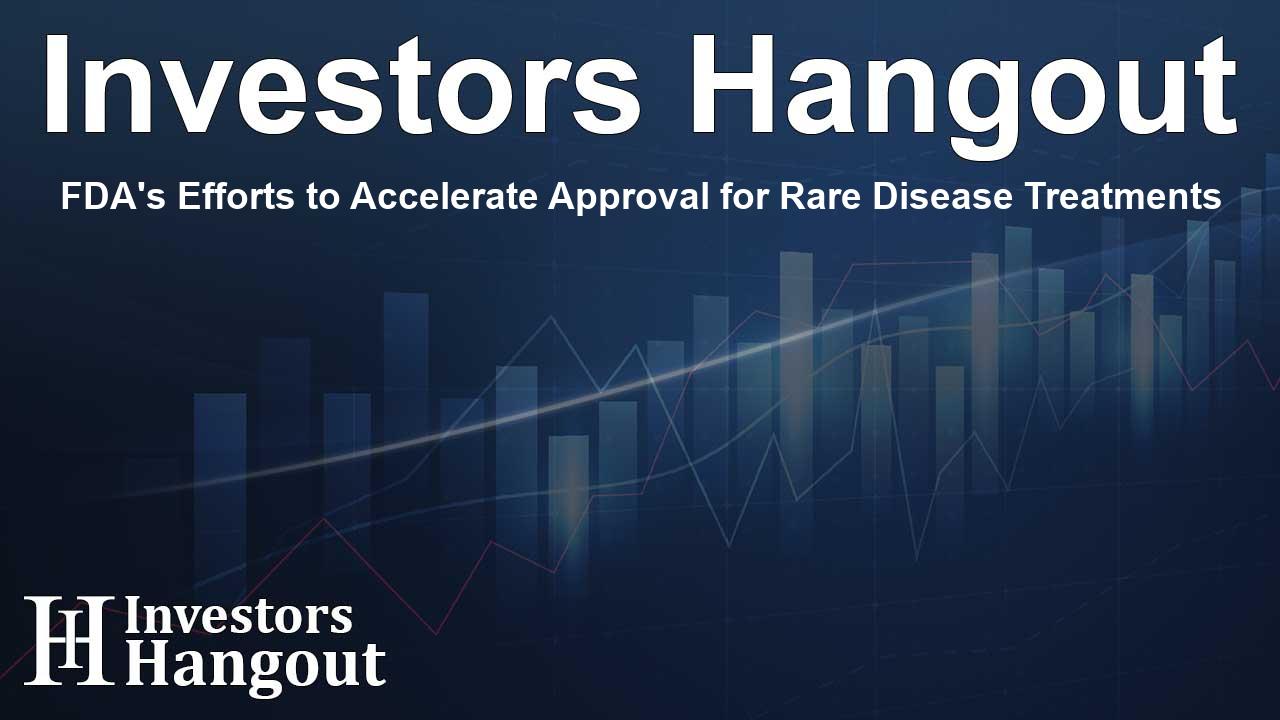FDA's Efforts to Accelerate Approval for Rare Disease Treatments

Understanding the FDA's New Framework for Rare Diseases
The U.S. Food and Drug Administration (FDA) has recently taken a significant step forward by unveiling the Rare Disease Evidence Principles (RDEP). This new framework aims to enhance the efficiency and predictability regarding the therapies developed for rare diseases that have very small patient populations.
Key Features of the RDEP Process
Under the RDEP framework, sponsors of drug therapies are set to receive clearer directives that outline the kind of evidence necessary to substantiate their claims of effectiveness. The approval process can now proceed based on a single robust and well-structured clinical study, supplemented by strong confirmatory evidence.
Types of Acceptable Evidence
The supporting evidence may include various forms of data, such as:
- Strong mechanistic or biomarker evidence
- Evidence from relevant non-clinical models
- Clinical pharmacodynamic data
- Case reports, expanded access data, or natural history studies
Distinctions from Orphan Drug Designation
It's important to understand that requests made under the RDEP process are independent of those seeking orphan-drug designation outlined in the Federal Food, Drug & Cosmetic (FD&C) Act. Thus, a drug eligible for evaluation under the RDEP may not automatically receive orphan designation.
Industry Perspectives and Market Impact
Analysts have expressed cautious optimism regarding the implications of the RDEP. Industry leader William Blair highlighted the FDA's increasing flexibility in reviewing gene therapies tailored for rare diseases. However, uncertainty lingers regarding the tangible effects this new framework will have on the overall drug approval timeline.
Ongoing Developments in Gene Therapy
Numerous gene therapies currently under development are leveraging the flexibility offered by single-arm trials for registration. Some notable therapies include:
- Neurogene Inc.'s NGN-401
- Rocket Pharmaceutical Inc.'s RP-A501
- Lexeo Therapeutics, Inc. LX2006
- Ultragenyx Pharmaceutical Inc. UX111 and DTX401
- uniQure NV’s AMT-130
The Future of Gene Therapy Approvals
William Blair's latest analysis mentioned Dr. Vinay Prasad's reinstatement as head of the FDA’s Center for Biologics Evaluation and Research. His return has the potential to introduce more volatility in the cell and gene therapy sectors since Dr. Prasad has been openly critical of how the biopharmaceutical industry and the FDA utilize accelerated approvals.
The expected shift toward a greater reliance on interim clinical data rather than solely on surrogate biomarkers for accelerated approvals could benefit firms developing new therapeutics for rare diseases.
Implications for Patients and Investors
The implementation of the RDEP principles signifies a critical milestone in how therapies for rare diseases will be evaluated. This could expedite the process by which patients gain access to much-needed treatments, while also presenting significant investment opportunities in the biotech space
Frequently Asked Questions
What are the Rare Disease Evidence Principles?
The Rare Disease Evidence Principles (RDEP) are guidelines introduced by the FDA to expedite the approval process for therapies targeting rare diseases.
How does the RDEP process differ from the orphan drug designation?
The RDEP process focuses on the evidence for effectiveness of a therapy, while the orphan drug designation concerns special provisions for drugs that treat rare conditions.
What types of evidence are considered under the RDEP?
Evidence can include mechanistic proof, data from animal studies, clinical pharmacodynamics, and even case reports or natural history studies.
How might the RDEP impact the timeline for drug approval?
The RDEP could potentially shorten the drug approval timeline by allowing developers to present single study evidence supplemented by additional support.
Which companies are currently developing gene therapies under this new framework?
Notable companies include Neurogene Inc., Rocket Pharmaceuticals Inc., Lexeo Therapeutics, Ultragenyx Pharmaceutical, and uniQure NV, among others.
About The Author
Contact Evelyn Baker privately here. Or send an email with ATTN: Evelyn Baker as the subject to contact@investorshangout.com.
About Investors Hangout
Investors Hangout is a leading online stock forum for financial discussion and learning, offering a wide range of free tools and resources. It draws in traders of all levels, who exchange market knowledge, investigate trading tactics, and keep an eye on industry developments in real time. Featuring financial articles, stock message boards, quotes, charts, company profiles, and live news updates. Through cooperative learning and a wealth of informational resources, it helps users from novices creating their first portfolios to experts honing their techniques. Join Investors Hangout today: https://investorshangout.com/
The content of this article is based on factual, publicly available information and does not represent legal, financial, or investment advice. Investors Hangout does not offer financial advice, and the author is not a licensed financial advisor. Consult a qualified advisor before making any financial or investment decisions based on this article. This article should not be considered advice to purchase, sell, or hold any securities or other investments. If any of the material provided here is inaccurate, please contact us for corrections.
